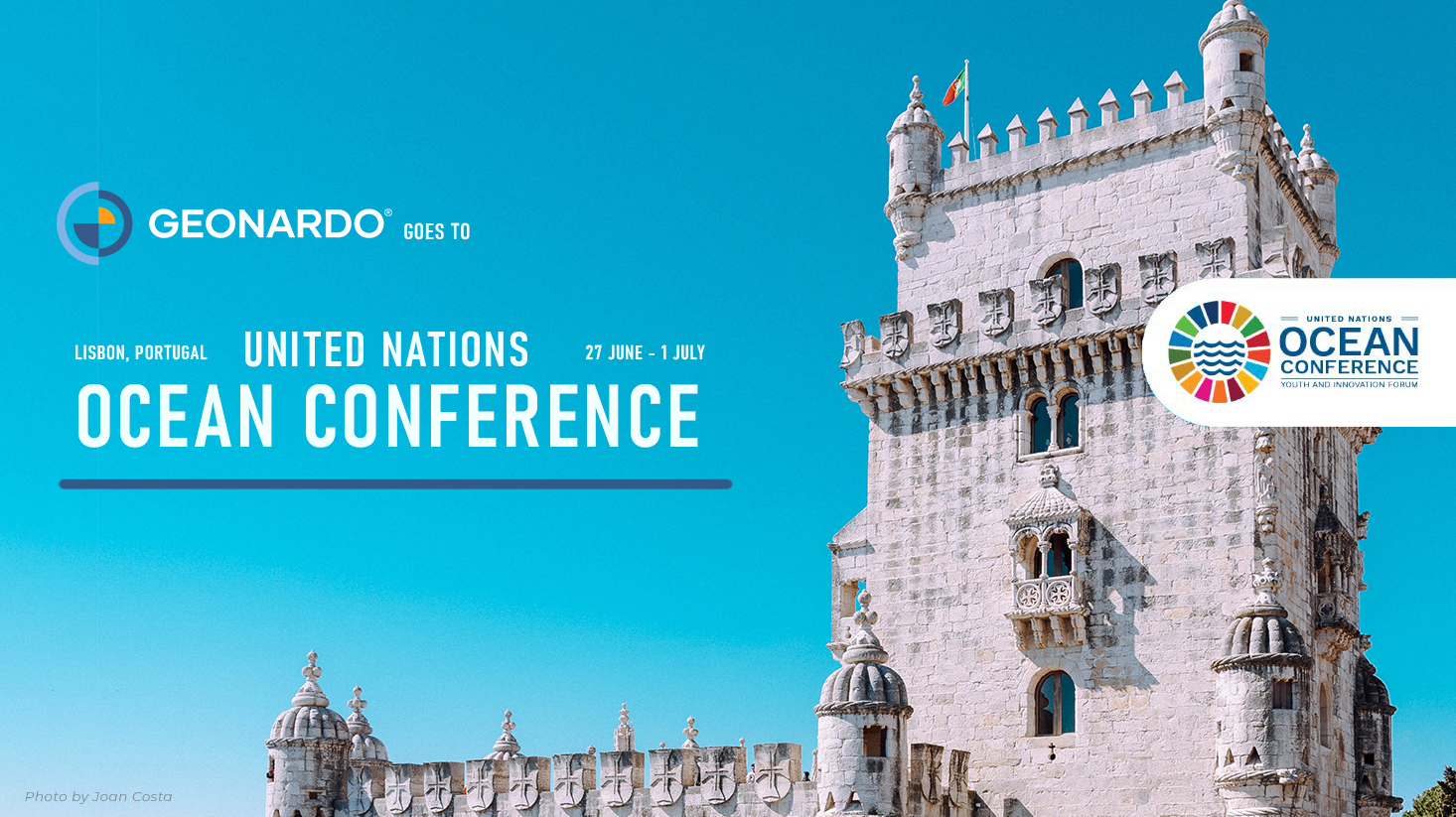Solutions for a sustainably managed ocean involve green technology and innovative uses of marine resources. They also include addressing the threats to health, ecology, economy and governance of the ocean - acidification, marine litter and pollution, illegal, unreported and unregulated fishing, and the loss of habitats and biodiversity.
Participants to this high-level conference include: all States Members of the United Nations, members of the specialized agencies and parties to the United Nations Convention on the Law of the Sea (UNCLOS); intergovernmental organizations, international financial institutions and other international bodies; associate members of the regional commissions; organizations and bodies of the United Nations; and non-governmental organizations, civil society organizations, academic institutions, the scientific community, the private sector and philanthropic organizations, including Geonardo in the shortlisted organizations to receive accreditation to attend the conference. You can check the programme of the event here.
About the 2022 UN Ocean Conference
The ocean covers 70 percent of the Earth’s surface, is the planet's largest biosphere, and is home to up to 80 percent of all life in the world. It generates 50 percent of the oxygen we need, absorbs 25 percent of all carbon dioxide emissions and captures 90 percent of the additional heat generated from those emissions. It is not just ‘the lungs of the planet’ but also its largest carbon sink - a vital buffer against the impacts of climate change.
It nurtures unimaginable biodiversity and produces food, jobs, mineral and energy resources needed for life on the planet to survive and thrive. There is a great deal we still do not know about the ocean but there are many reasons why we need to manage it sustainably - as set out in the targets of Sustainable Development Goal 14: Life Below Water.
The science is clear – the ocean is facing unprecedented threats as a result of human activities. Its health and ability to sustain life will only get worse as the world population grows and human activities increase. If we want to address some of the most defining issues of our time such as climate change, food insecurity, diseases and pandemics, diminishing biodiversity, economic inequality and even conflicts and strife, we must act now to protect the state of our ocean.

UN Ocean Conference - Side Events
Side events are also being organized in the margins of the Conference by the Member States, Intergovernmental Organizations, UN entities and all other duly accredited and registered entities. Priority will be given to events organized by the Member States and those organized in partnership by multiple entities. The side events can be checked here.
One of these side events, in line with the European Year of Youth will be the UN Ocean Conference Youth and Innovation Forum. This event will run between June 24-26, and it's being organized by the Governments of Portugal and Kenya and the UN Global Compact, in cooperation with CEiiA, Cascais, Nova School of Business and Economics (Nova SBE), the Sustainable Ocean Alliance, and with support from UN DESA.
The event aims to bring together 150 global young leaders between the ages of 18-35 for a 2 1/2 day hackathon-style event where young leaders will develop solutions to challenges around the 5 Tipping Points for a Healthy and Productive Ocean.
Participants will also get the opportunity to contribute to the UN Ocean Conference political process by facilitating input to the eight interactive dialogues.
UN Decade of Ocean Science for Sustainable Development 2021 - 2030
A vast majority of the ocean remains unmapped, unobserved and unexplored. Our understanding of the ocean and its contribution to sustainability largely depends on our capacity to conduct effective ocean science - through research and sustained observations, supported by adequate infrastructures and investments.
The Decade provides a common framework to ensure that ocean science can fully support countries’ actions to sustainably manage the ocean and more particularly to achieve the 2030 Agenda for Sustainable Development – through the creation of a new foundation, across the science-policy interface, to strengthen the management of the ocean and coasts for the benefit of humanity.
